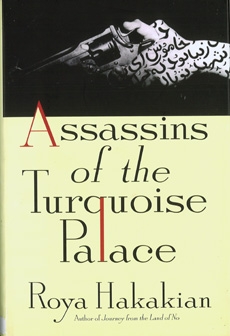|
PRESENTATION
On the evening of September 17, 1992, eight leading members of the Iranian and Kurdish opposition had gathered at a little-known restaurant in Berlin when two darkly clad men burst through the entrance. Within moments, the roar of a machine gun filled the air. After two rounds of fire, four single shots followed, leaving four dead.
Who pulled the triggers? The morning papers implicated people associated with the Iraqi president, Saddam Hussein. The chief federal prosecutor suspected a Kurdish rival group. But neither the press nor the country’s top lawman knew then that these dead were not alone. Since 1980, over one hundred Iranian exiles had disappeared or been assassinated throughout Europe and elsewhere. Their cases remained "open" and their murders treated as mysteries.
But to the federal prosecutor who began investigating the murder, no case was unsolvable. The investigation would pit him against ubiquitous figures who unleashed all their means to subvert him. The ultimate showdown was a trial that some legal historians call one of Europe’s most important since Nuremberg after World War II. The verdict that ensued was a political earthquake whose aftershocks still reverberate through Iran and its relations with the world. Roya Hakakian’s Assassins of the Turquoise Palace is a thrilling reconstruction of a brutal crime and turning point in German and Iranian history, and an unforgettable narrative of heroism and justice.
To the Reader
This is a work of nonfiction. The characters and events depicted in this book are real. The material has been drawn from video archives, television and radio interviews, personal Web sites, and the notes and diaries of the individuals involved. There was also a wealth of trial reports, notes, memorandums, police documents, and newspaper and magazine articles to which I gained access. Moreover, I conducted my own interviews with many individuals whose lives had been touched by the case. Dialogue has been reconstructed based on the recollections of interviewees or been taken from the actual reports or transcripts. For a more comprehensive catalog of all the material used, a quick character reference or a glossary of unfamiliar terms, please see "Sources" at the end of the book.
Anytime I open my mouth to say something about the sad turn of events in my country, people worry that their funny man has become too political. I don't know what it means to be political. All I am is a resister against a band of thugs. I want for my homeland all the good things that forced us into exile in the West. I want freedom. If that loses me fans by making me political, if it makes me a target of the thugs, if it endangers my life and the life of my family, so be it!
— Hadi Khorsandi, exiled Iranian satirist against whom Ayatollah Khomeini issued a fatwa in 1980
1
Berlin, Germany, September 17,1992. After nearly an hour prowling Prager Street, surveying the restaurant in its cul-de-sac, two hulking, bearded figures rolled their collars up to their eyes and burst inside. A third man stood guard at the entrance. It was 10:47 p.m.
They darted through the main dining hall, past a lonely customer nursing a last drink. Through an archway, they entered the back room, where a party of eight sat at a corner table. The taller of the two intruders stationed himself behind one of the diners; facing the eldest among them—a bald, bespectacled man in a gray suit who was addressing everyone. No one was yet aware of their arrival. The speaker, suddenly meeting the intruder's dark gaze, froze in midspeech. Another guest asked what was wrong with him. The answer came from the intruder.
.....
| 